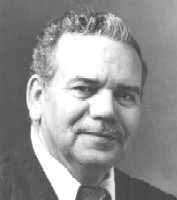Monday, August 28, 2006
In simplicity, power
One of the best writing lessons I ever had came from my first editor, Gene Price of the Goldsboro News-Argus, an afternoon daily in North Carolina.
He told me to read the 23rd Psalm, the one that begins “The Lord is my shepherd; I shall not want.” Mr. Price wasn’t trying to convert me from my heathen ways. No, he wanted me to see the rhythm and grace of biblical language, how it uses plain words, strong nouns and verbs with a minimum of adjectives and adverbs to paint powerful images.
No doubt about it, the poetry in the Bible is some of the most beautiful language ever penned.
A writer could do a lot worse, whatever his religion, than studying the writing in that book and soaking up its cadences.
Years later, I came across a famous passage from Orwell that reinforces the lesson by way of comparison. Orwell took a verse from Ecclesiastes and rendered it into the mind-numbing mush that passes for writing among bureaucrats and some academicians:
Objective considerations of contemporary phenomena compel the conclusion that success or failure in competitive activities exhibits no tendency to be commensurate with innate capacity, but that a considerable element of the unpredictable must invariably be taken into account.
Here’s the passage as it should read:
I returned and saw under the sun, that the race is not to the swift, nor the battle to the strong, neither yet bread to the wise, nor yet riches to men of understanding, nor yet favour to men of skill; but time and chance happeneth to them all.
Beautiful.
That excerpt is from Orwell’s essay “Politics and the English Language,” May 1945. If you haven’t read it, or haven’t read it lately, follow the link above. You’ll find that Orwell’s commentary is as fresh and as valid as if it had been written last week.
